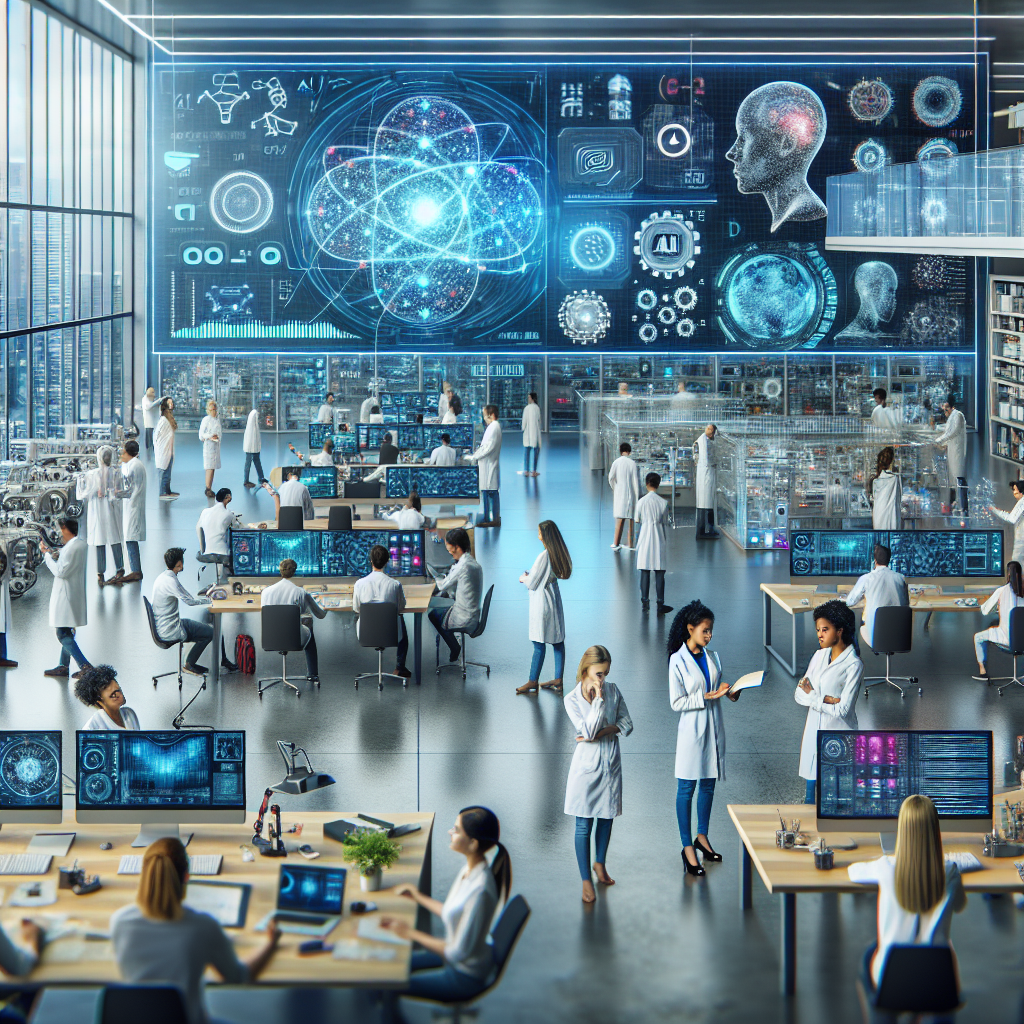
Artificial Intelligence (AI) is a rapidly evolving field that is transforming the way we live, work, and interact. From self-driving cars to virtual assistants, AI is increasingly becoming an integral part of our daily lives. This article delves into the current research trends in AI and explores its potential future applications.
Current Research Trends in AI
AI research is currently focused on several key areas, including machine learning, natural language processing, robotics, and computer vision. These areas are being explored to develop AI systems that can learn from experience, understand human language, interact with the physical world, and interpret visual information.
- Machine Learning: This involves developing algorithms that allow computers to learn from data. For example, Google’s DeepMind developed an AI called AlphaGo that taught itself to play Go, a complex board game, by analyzing millions of games.
- Natural Language Processing: This involves teaching computers to understand and generate human language. For instance, OpenAI’s GPT-4 and GPT-40 can generate human-like text, making it useful for tasks like translation and content creation.
- Robotics: This involves creating machines that can interact with the physical world. Boston Dynamics‘ Spot, a robot dog, can navigate complex terrains and carry out tasks in hazardous environments.
- Computer Vision: This involves teaching computers to interpret visual information. For example, Facebook’s AI can recognize and tag people in photos.
Future Applications of AI
As AI continues to advance, it is expected to have a profound impact on various sectors, including healthcare, education, transportation, and entertainment.
- Healthcare: AI could revolutionize healthcare by enabling personalized medicine, predicting disease outbreaks, and improving diagnostics. For example, Google’s DeepMind has developed an AI that can predict eye disease earlier than human doctors.
- Education: AI could personalize education by adapting learning materials to individual students‘ needs. For instance, Carnegie Learning’s MATHia uses AI to provide personalized math instruction.
- Transportation: AI could transform transportation through self-driving cars and intelligent traffic management systems. For example, Waymo’s self-driving cars have already driven millions of miles on public roads.
- Entertainment: AI could change entertainment by creating personalized content and interactive experiences. For instance, Netflix uses AI to recommend shows based on users‘ viewing habits.
Challenges and Ethical Considerations
Despite its potential, AI also poses significant challenges and ethical considerations. These include issues related to privacy, job displacement, and algorithmic bias. For instance, facial recognition technology has been criticized for invading privacy and perpetuating racial bias. Therefore, it is crucial to develop ethical guidelines and regulations to govern the use of AI.
Conclusion
AI is a transformative technology with the potential to revolutionize various sectors. Current research trends in AI are focused on machine learning, natural language processing, robotics, and computer vision. Future applications of AI could have a profound impact on healthcare, education, transportation, and entertainment. However, it is also essential to address the challenges and ethical considerations associated with AI to ensure its responsible use. As we continue to explore the possibilities of AI, it is clear that this technology will play a pivotal role in shaping our future.
